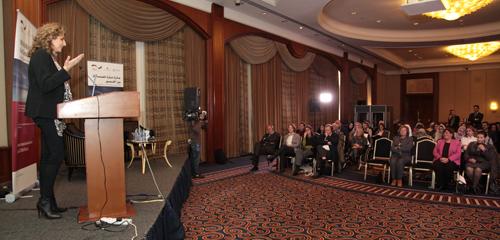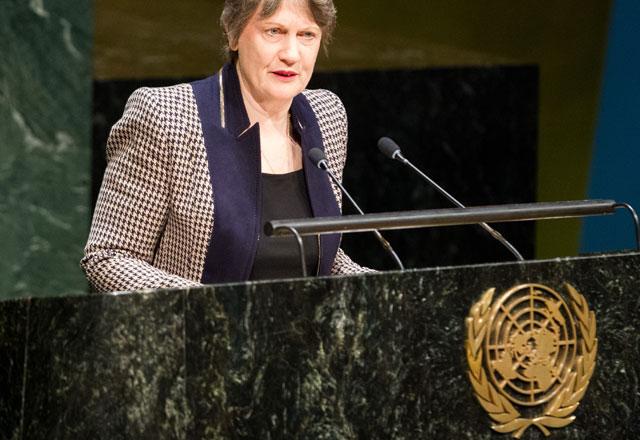You are here
Increasing women’s economic participation requires new strategy — stakeholders
By Rana Husseini - Jan 23,2020 - Last updated at Jan 23,2020
DEAD SEA — Women leaders on Thursday agreed that strategies on women’s economic empowerment should adopt new methods to ensure better female representation in all arenas.
“We need to set our national priorities and address the low percentage of women’s economic participation,” said MP Reem Abu Dalbouh, who heads Parliament’s Women and Family Affairs Committee.
The MP stressed the need to strengthen partnerships between the legislative body and the private and public sectors to address the many challenges facing women’s economic participation in Jordan.
Abu Dalbouh made her remarks on a panel during the two-day Economic Empowerment of Women in Jordan Conference, which brought together businesswomen, female owners of small- and medium-sized companies, policymakers and representatives from the private sector, financial service entities and civil society agencies.
Senator Sawsan Majali, who moderated the panel, agreed with Abu Dalbouh, stating: “Despite all the efforts that have been adopted in Jordan, unemployment among women remains high".
“We should address where we are now and what we have accomplished and what we still need to work on. We have to own our problems and be part of the solution,” Majali said.
Senator Haifa Najjar, for her part, stressed the need to adopt proper solutions "derived from our identities as Arabs and Muslims”.
She also highlighted the need to expand efforts to reach other governorates and ensure that women around the Kingdom are being empowered and given the same chances as women in Amman.
Meanwhile, Secretary General of the Higher Population Council (HPC) Abla Amawi stressed the need to ensure just distribution of resources to both men and women in Jordan, because "only then will women be able to improve their lives and well-being”.
Amawi also pointed out that, while much effort has been exerted over the years to increase women’s economic participation in Jordan, the percentage remains the same.
“We need to think of new and innovative ways to make the needed change to increase women’s economic participation and to be committed towards this cause,” Amawi said.
The HPC official suggested allocating a 30 per cent quota for women in all labour fields and other political positions.
“The excuse of culture barriers is used to justify women’s weak economic participation. That is why we should introduce a 30-per cent quota in all fields to guarantee a strong representation of women in all positions and fields in our society,” she concluded.
Panelist Salma Nims, the secretary general of the Jordanian National Commission for Women (JNCW), added that the JNCW is drafting a new strategy to empower women "in all fields" and at the same time to channel donor funding "to our advantage and national priority”.
“We will not succeed unless we are capable of directing the donors to support our goals and strategies, which in the end will work to guarantee the success of our Jordanian strategy and priorities,” Nims stressed.
The event, which was held under the patronage of Prime Minister Omar Razzaz, was organised by the Inter-Ministerial Committee for Women’s Empowerment in partnership with the Coalition of Women Members of Parliament from Arab Countries to Combat Violence against Women and the House of Representatives, represented by the Women Parliamentary Caucus and the Women and Family Affairs Committee.
The two-day conference was supported by UN Women and the Government of Italy through the Italian Agency for Development Cooperation (IADC).
Related Articles
The women’s movement and civil society have called for including a minimum 30 per cent quota for women in the draft municipalities and decentralisation laws currently in Parliament.
AMMAN — Local organisations and individuals in Jordan, Lebanon and Palestine working on projects in the field of gender equality have around
The Jordanian National Commission for Women (JNCW) on Wednesday reiterated its commitment to lobbying for women’s rights in cooperation with civil society.

Opinion
Apr 09, 2025
Apr 08, 2025
- Popular
- Rated
- Commented
Apr 08, 2025
Apr 09, 2025
Newsletter
Get top stories and blog posts emailed to you each day.

















